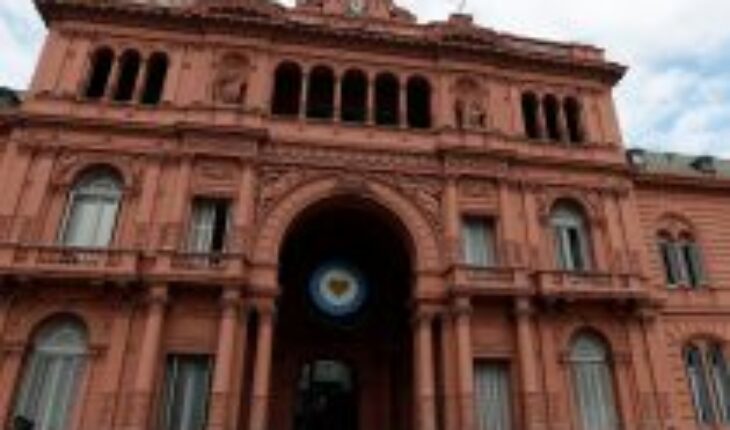Argentina’s economy will grow by 2% with inflation of 60% per year in 2023, according to the draft budget that the government sent to the Congress of the trans-Andean nation, a source from the Ministry of Economy told the press.
In the midst of a delicate financial crisis, the southern country will grow by 4% and will have inflation of 94.5% this year, according to the source, who preferred that his identity not be revealed.
“The budget is realistic,” the source said.
Economy Minister Sergio Massa confirmed through a tweet that his ministry sent the project to Congress for discussion at night.
“If there is no budget (because Parliament does not approve it), we would be in a situation of ‘shutdown’,” he said, since the budget for 2022 was also not approved by a Congress where the forces of the center-left ruling party and the opposition are balanced.
Public spending will rise by 65% next year – when general elections will be held in Argentina – according to the source, so it will exceed the inflation pattern, while the country will have a trade surplus of 12,300 million dollars.
Argentina will have a primary fiscal deficit equivalent to 1.9% of GDP and a financial deficit of 3.9%, according to the project revealed by the source.
The majority of Argentines surveyed earlier this month said the country’s economic situation will worsen in the coming months, according to a survey published by management & fit.
According to the survey carried out between September 2 and 13, 63.7% of the participants said that the evolution of the economy will be worse, the highest level recorded since at least October 2017, according to the survey data. The previous month those who responded in this way totaled 58.6%.
The third largest economy in Latin America is going through an economic and financial crisis, with a high level of poverty, a significant fiscal deficit and inflation that will end the year at 95%, as estimated by the Government in the 2023 draft budget.
The economy will grow this year by 4%, compared to 10.3% in 2021 while in 2023 it will slow to 2%, according to the project.
The main problems facing the country are inflation, rising tariffs and corruption, according to most survey responses.
The management of President Alberto Fernández was rejected by 73.2% of respondents, also the highest level since at least October 2017, while 19.8% approved his management, above the 18.4% who were in favor in the previous month’s survey.
Asked about the intention to vote for president if the elections were held now, 59.9% of respondents said they would vote for a candidate from the opposition to the Peronist government of Fernández, above the 55.8% who favored that option in the previous poll.
Meanwhile, 29.4% responded that they would vote for a candidate of the ruling party, slightly above the 29.3% who answered in the same way in the July poll.
Although Argentines will go to the polls in 2023 to elect the president and part of Congress, the candidacies are not yet defined.
The M&F survey was conducted by telephone nationwide among 2,200 participants aged 16 to 75 and has a margin of error of 2.1% and a confidence level of 95%.
The approval, which has to be ratified by the IMF’s executive board, would provide funds of 3.9 billion dollars for Argentina, which is trying to rebuild its reserves and lower a very high inflation rate.
Argentina, a leading global grain exporter, struck a new deal with the IMF this year to replace a failed 2018 program. The new programme was critical for the country to meet obligations to the Fund.
The deal involves economic goals, including rebuilding depleted reserves and cutting a deep fiscal deficit to improve the country’s finances.
“Most of the program’s quantitative targets revised at the end of June 2022 were met, with the exception of the net international reserve floor, mainly due to higher-than-scheduled import volume growth,” the IMF said in a statement.
“A subsequent period of volatility in the currency and bond markets has been appeased by decisive policy decisions to correct previous setbacks and to rebuild credibility,” the agency said.
The IMFIt followed the steps taken by Argentine Economy Minister Sergio Massa, who took office in August after a period of instability that included the resignation of Martin Guzman at the head of the economy and the two-week stint of Silvina Batakis in office.
Regarding Argentina’s reserves, which have proven difficult to rebuild, the IMF said they should grow by about $9.8 billion in the 2022-23 period, in line with program goals. However, the global economic climate has weighed on growth and boosted inflation.
Despite this, within the framework of determined actions by the new economic team, market pressures are dissipating, and the growth forecast remains stable at 4% for this year, before moderating to a potential rate of 2% for 2023 and beyond,” the IMF added.
Follow us on





